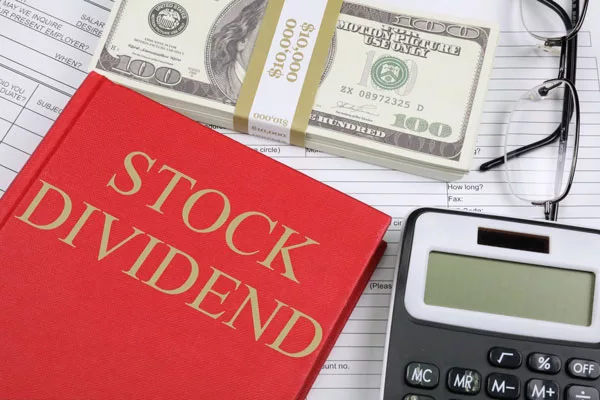Stocks and Bonds: The Ultimate Guide for Seniors Looking to Invest
Table of Contents
Introduction
Stocks and Bonds are not just for the Wall Street elite; they’re for everyone, especially us seasoned citizens. If you’ve ever wondered how to diversify your portfolio or what the heck a bond yield is, you’re in the right place.
So grab your reading glasses and a cup of herbal tea—let’s dive in!
Stocks and Bonds for Beginners: A Quick Overview
Ah, the world of investing, where the young and restless often make headlines. But let’s not forget, we’ve got the wisdom that only comes with age. Stocks are essentially a piece of a company that you own.
Think of it as buying a slice of the pie. Bonds, on the other hand, are like lending money to someone (usually a company or government) in exchange for interest payments and the return of the loan amount when the bond matures.
Stocks vs. Bonds: What’s the Difference?
The primary difference between stocks and bonds lies in what you own and what you earn. With stocks, you own a part of the company and may receive dividends.
With bonds, you’re a lender who receives interest payments. Stocks are generally riskier but offer higher potential returns, while bonds are the slow and steady wins the race kind of investment.
Real-Life Examples: Stocks and Bonds in Action
Let’s say you buy stock in a tech company called “TechieGenius.” If TechieGenius does well, your stock value goes up.
On the flip side, if you buy a bond from “SafeHaven Corp,” you’ll receive interest payments for a set period, and then get your initial investment back when the bond matures. Simple, right?
The Similarities Between Stocks and Bonds
Both stocks and bonds are investment vehicles, and both can be part of a diversified portfolio.
They can be bought and sold on the open market, and their prices can fluctuate based on economic conditions. So, in essence, they’re two sides of the same investment coin.
Why It’s a Good Idea to Invest in Both
Diversification is the name of the game. Having both stocks and bonds in your portfolio can help balance risk.
When the stock market is doing the cha-cha slide (you remember that one, right?), bonds can provide stability.
Stocks vs. Bonds vs. Mutual Funds: A Comparative Analysis
Now, if stocks and bonds were the only options, life would be much simpler. But enter mutual funds—a pool of funds collected from many investors for the purpose of investing in stocks, bonds, or other assets.
Mutual funds offer diversification in a single package, but they come with management fees. So choose wisely!
Why Bonds Are Sometimes Better Than Stocks
There are times when bonds are the better choice, especially for those of us who prefer less drama in our lives.
Bonds offer predictable returns and are generally less volatile than stocks. So if you’re looking for something stable, bonds are your go-to.
The Blogging Boom: Why You Should Share Your Investment Journey
Ever thought about sharing your financial wisdom with the world? Starting a blog could be a great way to do that.
And let’s spill the tea; it’s 2023, and blogging is one of the easiest ways to make some extra cash. So why not monetize that lifetime of experience?
Conclusion
Investing in your golden years doesn’t have to be a daunting task. With the right strategy, you can continue to grow your wealth and enjoy a comfortable retirement.
So go ahead, take that first step, and remember, you’re not just getting older; you’re getting richer!
Questions & Answers
- Q: Is it too late to start investing at 70?
- A: Absolutely not! It’s never too late to start investing; you just need to adjust your strategy to suit your age and risk tolerance.
- Q: What are the safest investment options for seniors?
- A: Bonds, Treasury notes, and annuities are generally considered safe options. But remember, always consult a financial advisor before making any significant investment decisions.
- Q: How can I diversify my portfolio?
- A: Diversification can be achieved by investing in different asset classes like stocks, bonds, and real estate. You can also diversify within each asset class.
- Q: What’s the minimum amount I need to invest in stocks or bonds?
- A: The minimum amount varies depending on the platform and the specific investment. Some online brokers allow you to start with as little as $100, while others may require more. Always check the requirements before diving in.
- Q: How do I choose between individual stocks and stock mutual funds?
- A: Individual stocks let you pick and choose specific companies, but they come with higher risk. Stock mutual funds offer diversification and are managed by professionals, making them a safer but less personalized option.
- Q: Can I lose money with bonds?
- A: While bonds are generally considered safer than stocks, they are not entirely risk-free. Factors like interest rate changes and the issuer’s financial stability can impact your investment.
- Q: How do dividends work with stocks?
- A: Dividends are payments made by a corporation to its shareholders, usually in the form of cash or additional shares. Not all stocks offer dividends, so if this is important to you, make sure to do your research.
- Q: What are bond yields?
- A: A bond yield is the amount of return an investor realizes on a bond. It’s expressed as a percentage and is calculated based on the bond’s annual interest payment and its current market price.
- Q: Is it better to invest in domestic or international stocks?
- A: Both have their pros and cons. Domestic stocks are generally considered less risky but may offer lower potential returns. International stocks can diversify your portfolio but come with additional risks like currency fluctuations.
- Q: What are Treasury bonds?
- A: Treasury bonds are issued by the U.S. government and are considered one of the safest investments. They have long maturity periods, usually ranging from 10 to 30 years, and offer fixed interest payments.
- Q: How can I manage the tax implications of my investments?
- A: Tax considerations are crucial when investing. Long-term investments are generally taxed at a lower rate than short-term ones. Consult a tax advisor for personalized advice tailored to your situation.
- Q: What’s the deal with index funds?
- A: Index funds are a type of mutual fund designed to track the performance of a specific market index. They offer diversification and usually come with lower fees compared to actively managed funds.
- Q: How do I start a blog to share my investment journey?
- A: Starting a blog is easier than ever, thanks to various platforms that offer user-friendly interfaces. Pick a niche, create valuable content, and don’t forget to monetize your blog through ads, sponsorships, or affiliate marketing.




